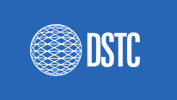|
DSTC's Knowledge research
examines the semantic interoperability of existing knowledge bases
including ontology integration. The program explores aggregating
and deriving knowledge from static and real-time information in
rich and human-centric forms such as natural language and multimedia.
It explores secure knowledge sharing through the use of views
which filter, aggregate or depersonalise private information and
explores inferencing and reasoning using information from multiple
organisations that may be inconsistent or aggregated.
The goal of the Program is to offer knowledge that is known
by one entity to other entities who may reason about it individually
or in aggregation with other knowledge.
Traditionally, information modelling has focussed on schemas
based around the storage of orthogonal primitive information
elements (basic facts) and relied on querying and other processing
to derive all other information. In reality, much information
is available in alternative primitive forms - the differences
may be subtle nuances or fundamental paradigm shifts - or in
aggregated complex forms.
The Knowledge program is mainly concerned with what can be
shared, rather than kept private. Specific issues are: merging
of alternative views of similar knowledge; support for temporal
and historical analysis; access-control aligned with trust models
and contracts; aggregation and anonymisation of data for sharing
purposes; and detection of attempts or reverse-engineer of private
information from aggregated summaries.
|

